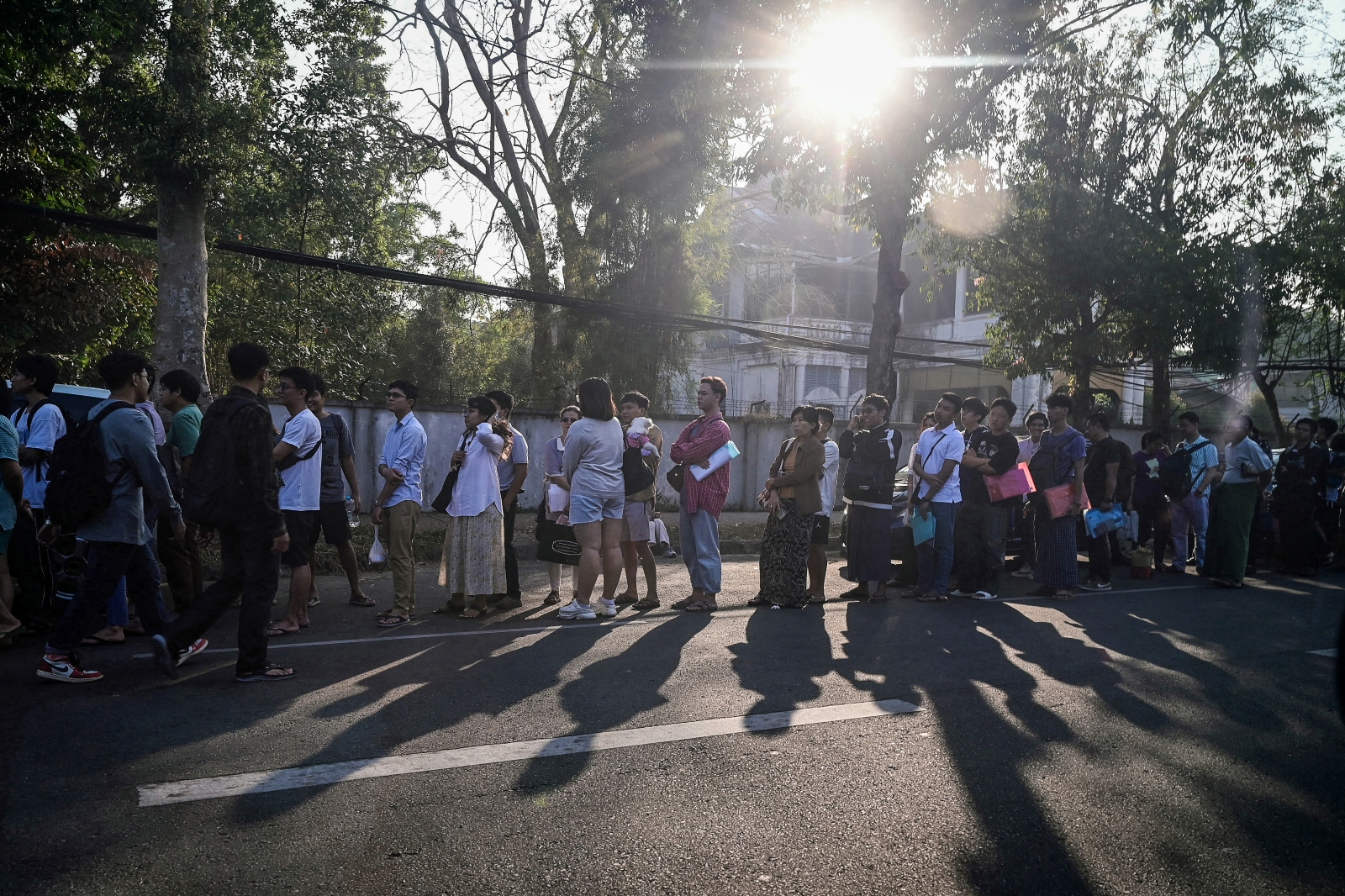Land confiscations by the military government is one of the most crucial issues in Myanmar’s transition, and it remains to be seen if those who lost their land will ever have it given back to them.
By SITHU AUNG MYINT | FRONTIER
AT THE August 23 session of the Pyithu Hluttaw, speaker U Win Myint was furious at the response given by Supreme Court Judge U Myint Aung and deputy minister for Home Affairs Major-General Aung Soe on a question related to land seizures.
The answers were in reply to a question by lawmaker U Aung Win (National League for Democracy, Hmawbi Township, Yangon Region), who asked the hluttaw to take “necessary measures relating to the prosecution of farmers whose lands were grabbed” while the government is still investigating the cases. He said that because land confiscations in the past had not been conducted legally, it was not fair for the victims to be prosecuted under the law.
In response, Myint Aung said the question was “tantamount to an opinion”, and didn’t want to respond. However, he said the judiciary could not stop accepting cases while land disputes were being examined. Both Myint Aung and Aung Soe said the confiscations had been undertaken by “authorized organisations” using “executive power”.
A furious Win Myint said the responses were not grounded in reality.
Support more independent journalism like this. Sign up to be a Frontier member.
The issue of land seizures under the military regime is one of the most important, and challenging, issues for the NLD government to deal with. Last year, just months after taking office, the government formed committees tasked with investigating land legacy claims.
However, progress has been slow and even today farmers whose land was taken from them when the country was under military rule have not had it returned to them, and many are still being jailed for “trespassing” on land that originally belonged to them.
Are those farmers ever likely to have that land returned to them? That’s the issue I would like to discuss this week.
As is well known, many acres of land – potentially in the millions – were seized from ordinary people by the military government. Although much of the eland was taken by government departments, or factions of the Tatmadaw, it was later sold off to businesspeople with close links to the military government, or family members of senior Tatmadaw officers.
During the rule of former president U Thein Sein, after lawmakers from the NLD entered parliament for the first time following the 2012 by-election, work began on trying to have seized land returned to its original owners. Later, in a parliament dominated by the military-linked Union Solidarity and Development Party, committees were established to investigate the issue, aimed at returning land to the original owners.
Shortly after, and again after the NLD formed its own committees, many farmers were hopeful that they would have their land returned to them. Government departments, as well as the Tatmadaw, were seen to be implementing a systematic policy aimed at returning the land to its original owners, and some land was in fact returned.
Occasionally, the committees would even publish statements and data about the cases.
In May 2015, a report by the land-use management committee said that of the nearly 15,000 cases received since November 2013, nearly 7,700 cases had been settled. However, the total number of acres returned was not clearly mentioned in the report.
In many cases, the “new” land owners rent it to the original owners, who then cultivate it. In these cases, the original owners are forced to pay money to work on land that they originally owned. This can lead to tension between the two parties, and when the government takes action to try and return the seized land, a dispute often arises; it has been known for the “new” owner to no longer allow the original owner to work on the land anymore. In desperate situations, and without access to any other form of income, they often resort to cultivating the land without permission, leading to cases being brought against them for trespassing.
When this issue was raised in parliament, the deputy home minister said that the cases must be settled in court, and the land seizure review committees can do nothing about it. This attitude makes life even more difficult for farmers, which is why Win Myint responded so angrily.
Taking this into consideration, those who were granted the rights to seized lands are often well protected by the courts because of their strong connections. With that in mind, it will be a monumental task for the government to return the seized land to ordinary citizens.






